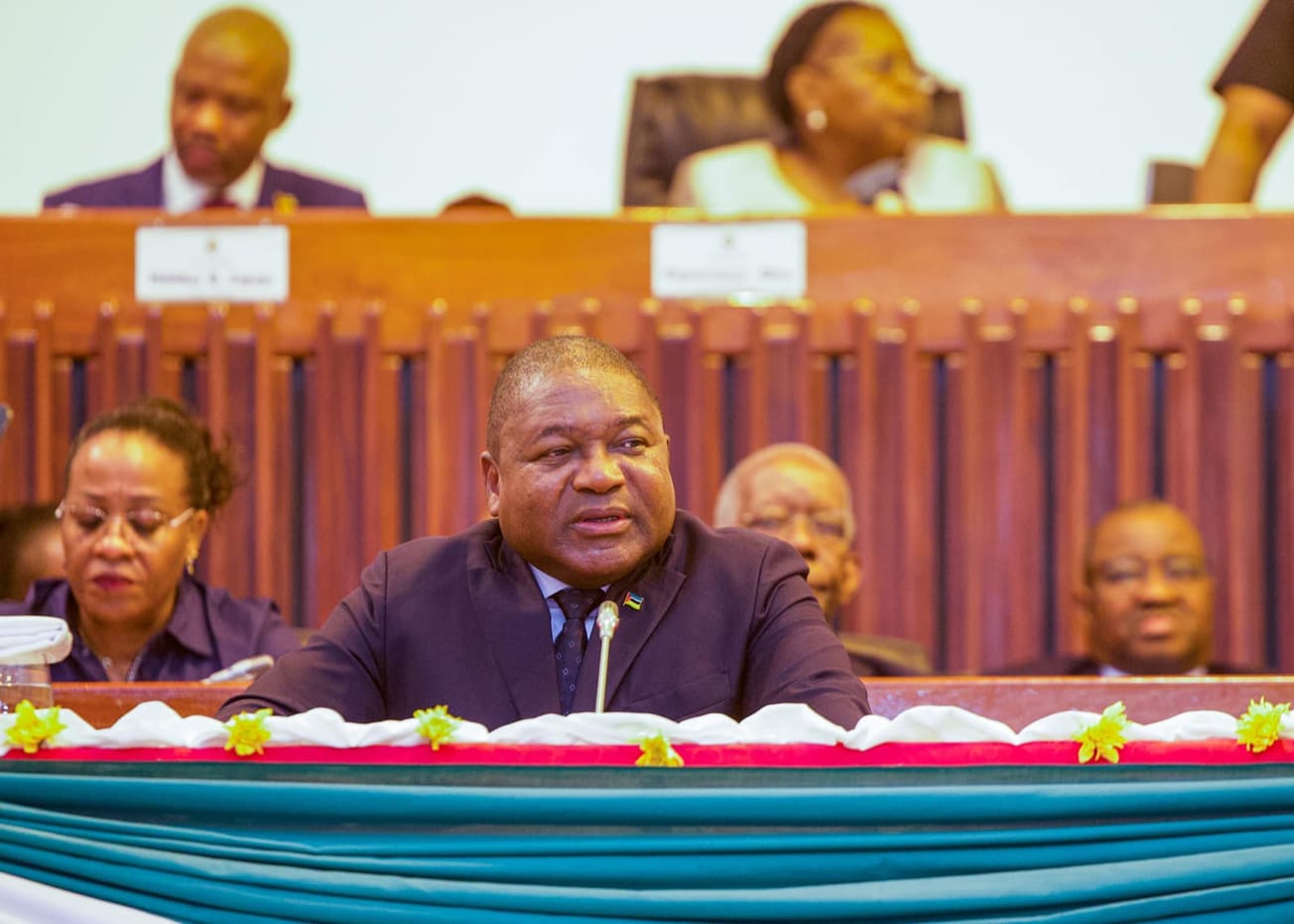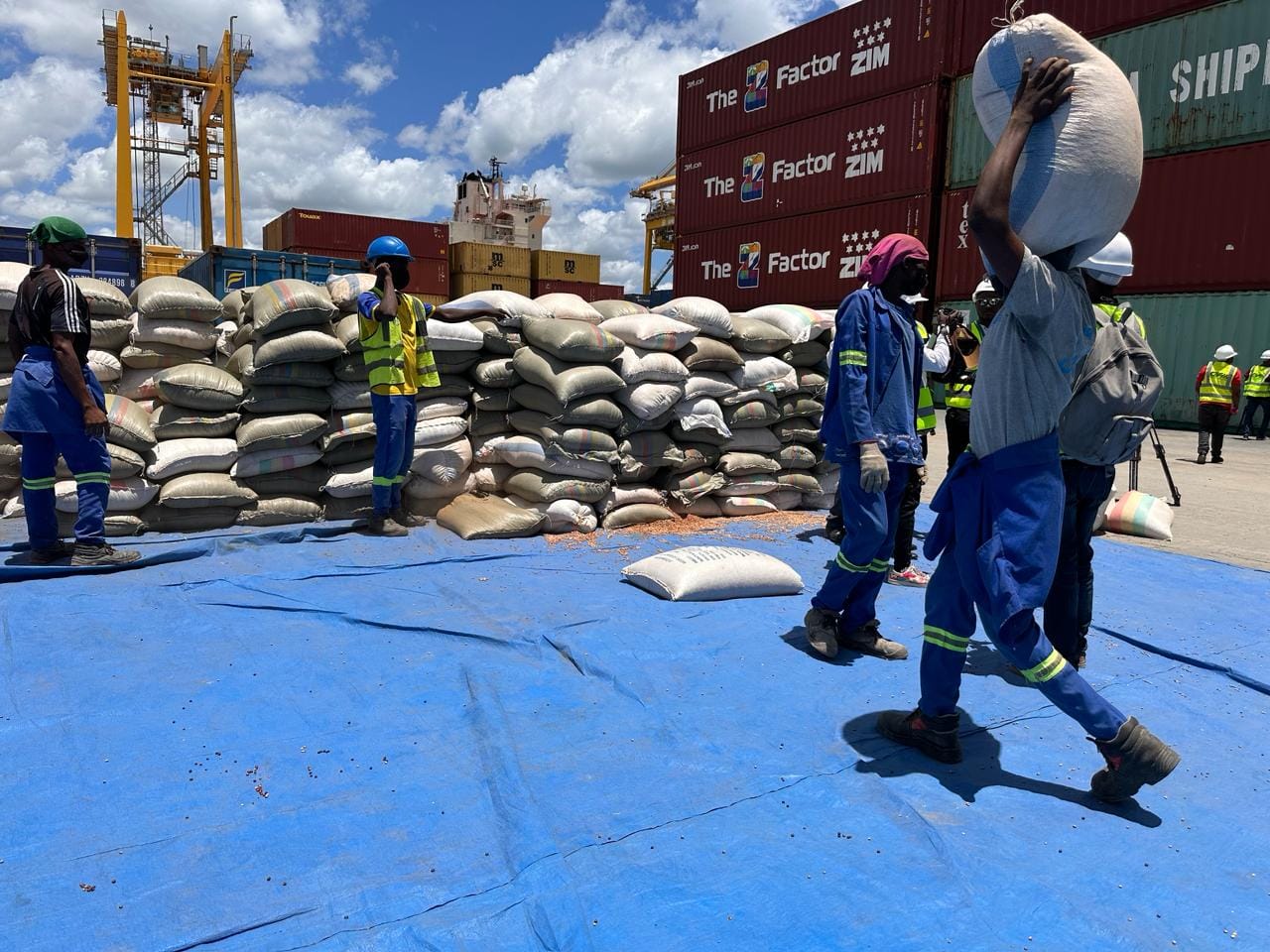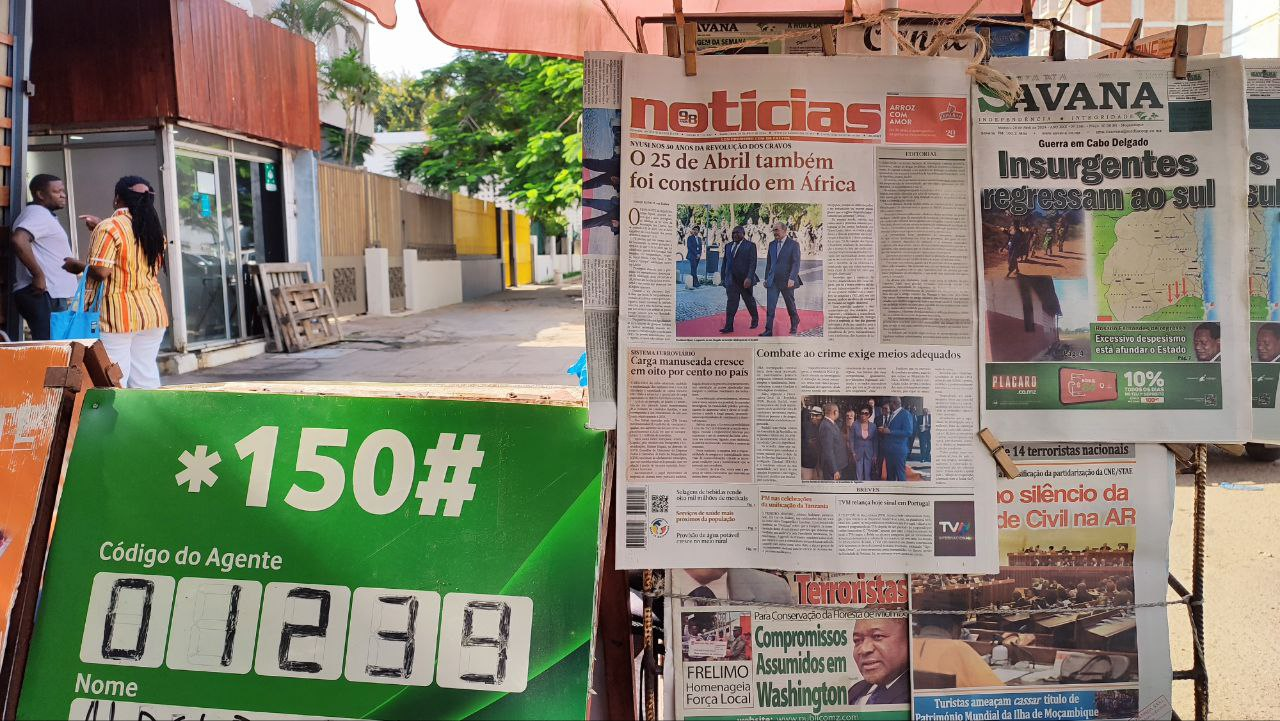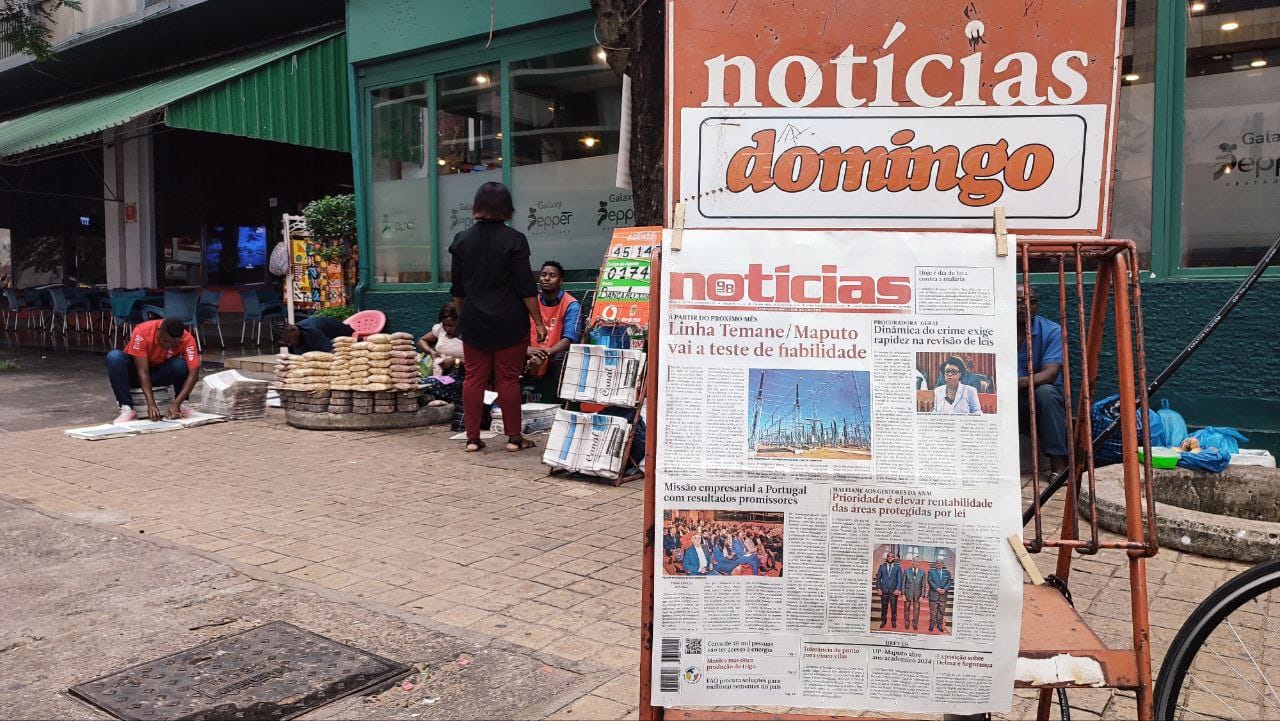Key events in the calendar next year in Mozambique include ruling party Frelimo choosing its leader, expected in March; the cyclone season, which will last until April; TotalEnergies restarting work on its gas project; regional forces leaving Mozambique around the middle of the year (or not); and the general election in October.
Frelimo chooses its next leader (expected March)
Although there are no fixed procedures in place, Frelimo's Central Committee is expected to hold a vote in March to select the next party president, who will succeed Filipe Nyusi and lead Frelimo into the general election (see below). Frelimo’s dominance in Mozambican politics, its authoritarian control of public institutions and its use of electoral fraud mean that that leader is all but guaranteed to become Mozambique’s next president.
The current frontrunner is Celso Correia, the agriculture minister, whom Nyusi seems to have designated as his preferred candidate. As party leader, Nyusi enjoys tight control of the party machine, so that it is difficult for challengers to emerge and canvass support within party structures.
But there is opposition to Correia, partly because of racism - his skin tone is relatively light - partly because of personal ambition, and partly because of a belief that the next leader should come from central Mozambique, to give people there some representation. Correia is a southerner. His position has also been undermined by Frelimo’s mixed performance in the local elections, and the fact that it was only able to win in key cities, like Maputo, Matola and Nampula, through vote-rigging.
Possible challengers talked about include former prime ministers Luisa Diogo and Alberto Vaquina, as well as former ministers José Pacheco and Basilio Monteiro. Samora Machel junior, son of Mozambique's first president Samora Machel, is thought to have presidential ambitions, but is unlikely to get the necessary support. The same can be said for police chief Bernardino Rafael. The winning candidate may yet be someone unexpected: few people expected the next Frelimo leader to be Nyusi in the run-up to his being selected in March 2014.
The differences between the contenders will be in their personalities rather than their policies; there are no real policy splits to speak of. The presidential contest is thus essentially a fight for power and patronage.
Cyclone season (now to April)
Cyclones are an annually recurring threat to Mozambique, whose long coastline on the Indian Ocean makes it particularly vulnerable to the tropical storms that arise there. In the south-west Indian Ocean region, the cyclone season typically runs between November and April.
Not all cyclones reach Mozambique, but when they do, the effects are devastating. Cyclone Freddy, the most powerful cyclone ever recorded, which struck Mozambique twice in February and March this year, caused over 140 deaths directly, according to the UN Office for the Coordination of Humanitarian Affairs. Cyclones also destroy buildings, infrastructure and crops, having the capacity to leave large parts of the population homeless. In March 2022, Cyclone Gombe uprooted 130,000 people from their homes and destroyed 91,177 hectares of crops, according to the United Nations High Commission for Refugees. By causing flooding, cyclones also exacerbate another seasonal natural disaster that affects Mozambique, outbreaks of cholera. Floods cause contaminated water to infect drinking water supplies.
How well Mozambique responds to the threat of cyclones will depend in part on whether it has a functioning early warning system in place to allow people to get to safety. The responsible body, the National Institute for Disaster Management, has used text message-based systems to alert people to cyclones in recent years, with mixed success.
More generally, Mozambique faces the potential for more climate-related damage and hardship next year in the form of the El Niño climate phenomenon, which is expected to cause droughts in the south of the country, likely to exacerbate food shortages in the countryside, and above-average rains in the north, which could lead to additional flooding.
TotalEnergies to restart work on gas project (sometime in 2024)
French energy firm TotalEnergies has for many months now been plotting when it can restart work on its $25bn liquefied natural gas (LNG) project in Cabo Delgado province, known as Mozambique LNG. The project holds the promise of bringing in tens of billions of dollars of revenues for the state over its lifetime, making a significant difference to government income. We report elsewhere this week on the possible timing of the restart, and the obstacles it needs to clear before serious work can begin. The project was suspended in March 2021 after Islamic State-backed insurgents attacked the town of Palma near the project site. Since then, TotalEnergies has said it was waiting for the security conditions to improve sufficiently for work to restart.
However, there are other challenges. Broadly they fall into four categories: physical, commercial, financial and security. On the last point, TotalEnergies has been under pressure from the Mozambican government, whose army commander this week insisted that “the work already done [by security forces] fully guarantees that companies can return”, a clear reference to TotalEnergies. In fact, insurgents are still seen in Mocímboa da Praia district, which borders the district home to the project site. However, protecting the project site will undoubtedly be a priority for the Mozambican government. TotalEnergies chief executive Patrick Pouyanné indicated in September that he was satisfied with security.
Commercially, TotalEnergies has been in disagreement with its contractors and subcontractors over their wish to raise the prices they agreed over two years ago. Pouyanné has insisted that he does not see why the company should pay any more, although the fact is that LNG project costs have gone up by an average of over 20% since 2020.
Financially, the banks and export credit agencies that are providing $14.9bn in debt, the majority of the project costs, will need to be persuaded to release their funds, something that, at present, some but not all have been convinced of, as we report (see here). Finally, in physical terms, the project site on the Afungi peninsula needs to be prepared and the bay needs to be dredged to allow boats to bring in supplies.
Regional forces due to leave Cabo Delgado province (mid-year?)
At present, Mozambique is relying heavily on help from foreign forces in fighting the insurgency in Cabo Delgado province; its own armed forces are not sufficient. A leaked document suggests that the military force sent by the Southern African Development Community (SADC), known as Samim, is due to withdraw by the middle of 2024. Whether this will actually happen remains to be seen. Demobilisation of the force was due to start this month, and there is no sign as yet that this has begun.
Whether the Samim force remains depends on whether the heads of government of SADC countries want it to, and whether they are prepared to continue paying for it. Samim was an idea of SADC which was essentially forced on Mozambican president Filipe Nyusi, who took some persuading to admit that Mozambique could not fight the insurgency on its own. The Samim forces have had a difficult working relationship with the Mozambican security forces in Cabo Delgado, something that may act as an incentive to leave. On the other hand, SADC leaders are to some extent mistrustful of the intentions of Rwanda, which has also sent security forces to Cabo Delgado, perceiving it to have imperial ambitions. For these leaders, Samim acts as a counterweight to Rwandan interests.
The Samim troops have been mostly patrolling villages in the district of Macomia, Muidumbe, Nangade, and are stationed in Pemba and Mueda, rather than being on the front line of combat operations.
One thing that would help Mozambique do without Samim is the training of Mozambican troops by the European Union (EU), a programme which the Mozambican government is trying to get renewed. The EU-trained troops are thought to be better quality than their untrained counterparts, and have been used as part of so-called quick reaction forces. Last month, Nyusi said that the Mozambican armed forces should be ready to work without foreign help.
Mozambique’s general election (October 2024)
In October Mozambicans will cast votes to elect the next president of Mozambique and members of the parliament, the Assembly of the Republic. Ruling party Frelimo will be defending its control of the presidency and its majority in the parliament.
The outcome of the presidential election is not in serious doubt, given the overwhelming advantage enjoyed by Frelimo, which is able to use state resources and public bodies like the police to give it the edge in campaigning. The local elections that took place in October saw systematic and coordinated electoral fraud carried out by officials at the electoral authorities in favour of Frelimo, and the Constitutional Council, the court with the final say on elections, found a way to ignore much of that evidence and declare Frelimo the winner in an overwhelming number of towns and cities. In this context, and together with Frelimo’s natural support from its traditional voters, it looks inevitable that it will be declared the winner of the presidential election and a majority in parliament, whether it gets the most votes or not.
However, Frelimo may face tougher resistance than before from opposition parties, who carried out monitoring and challenging of the vote count on an unprecedented scale in October’s local elections. More polling stations than ever before had opposition observers at them, and more legal complaints were filed with the courts than in the past. Nevertheless, the courts have tended to side with Frelimo in election disputes.
Places that could see genuine competition for votes in the parliamentary elections will be central Mozambique (Sofala and Manica provinces), Nampula province and, increasingly, the capital city of Maputo, where opposition parties are increasing their influence.
The aftermath of the local elections saw several demonstrations, some rowdy, held by people unhappy with what they saw as Frelimo stealing the elections. Police acted to suppress these demonstrations, including by firing live ammunition which caused several people to be wounded and killed. A repeat of the vote-rigging seen at the local elections in next year’s general election could potentially lead to more disorder.
On the other hand however, the failure of democracy in this year’s local elections could also lead to lower turnout as people become disillusioned with voting.








